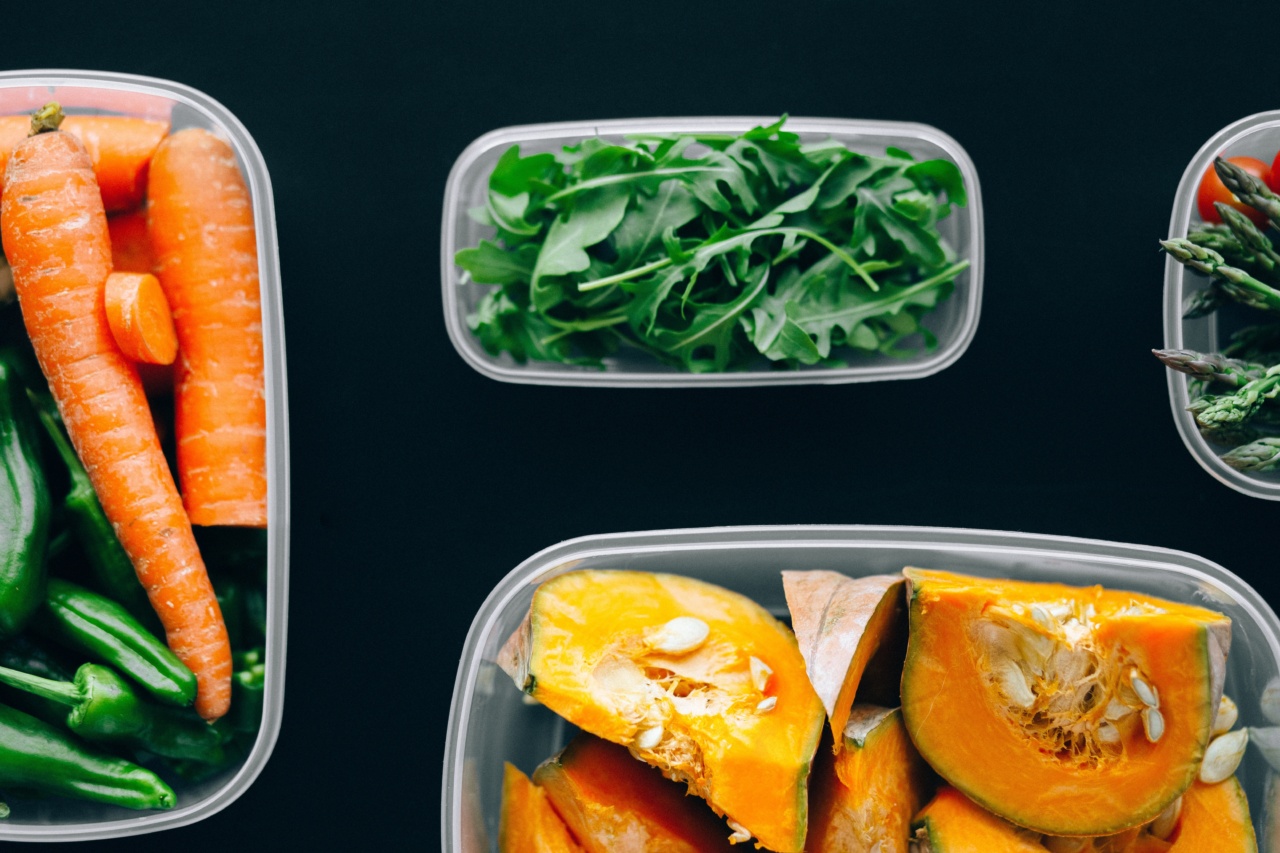Constipation is a common digestive problem that can cause discomfort and pain. It occurs when bowel movements become infrequent or difficult due to hardened stool.
Although constipation can be caused by various factors such as lack of physical activity, stress, medication, and dehydration, diet is one of the primary factors that influence bowel regularity. Consuming nutrient-rich foods that are high in fiber, fluids, and minerals can help to prevent and alleviate constipation. In this article, we will explore ten nutritious foods that can combat constipation effectively.
1. Apples
Apples are one of the best fruits that can help to regulate bowel movements. They are rich in fiber, particularly pectin which is a soluble fiber that makes stool softer and easier to pass.
Apples also contain sorbitol, a natural sugar that acts as a laxative by drawing water into the colon. Eating an apple with the skin on can provide an average of 4.4 grams of fiber which equals 17% of the daily recommended intake for adults.
2. Berries
Berries such as raspberries, blackberries, and strawberries are high in fiber and water content, making them effective in promoting regularity. One cup of raspberries contains 8 grams of fiber while blackberries have 7.6 grams per cup.
Berries are also rich in antioxidants, which can protect the colon and prevent inflammation. You can enjoy berries as a snack or add them to your oatmeal, yogurt, or smoothie.
3. Legumes
Legumes such as beans, lentils, and chickpeas are excellent sources of plant-based protein, fiber, and minerals. They can help to soften stool and promote bowel movements due to their high fiber content.
One cup of cooked lentils provides 15.6 grams of fiber, which equals 63% of the recommended daily intake for adults. Legumes also contain resistant starch, a type of starch that resists digestion in the small intestine and can stimulate bowel movements.
4. Whole Grains
Whole grains such as oats, brown rice, and quinoa are rich in fiber, vitamins, and minerals that can improve digestive health. They can help to increase stool bulk and soften it, leading to easier bowel movements.
One cup of cooked quinoa has 5.2 grams of fiber while one cup of cooked brown rice has 3.5 grams of fiber. Whole grains are also low in fat and high in complex carbohydrates, making them an excellent source of sustained energy.
5. Leafy Greens
Leafy greens such as kale, spinach, and collard greens are loaded with fiber, water, and magnesium, a mineral that can relax the muscles in the colon and aid in bowel movements.
One cup of cooked spinach has 4 grams of fiber while one cup of cooked collard greens has 5 grams of fiber. Leafy greens are also rich in vitamins A, C, and K, which can support immune function and promote healthy skin.
6. Prunes
Prunes are known for their laxative effect and are often used as a remedy for constipation. They are high in fiber, sorbitol, and phenolic compounds that can stimulate the digestive system and promote bowel regularity.
Eating six prunes a day can provide 12% of the daily recommended intake for fiber. Prune juice can also be effective in relieving constipation due to its high sorbitol content.
7. Avocado
Avocadoes are rich in healthy fats, fiber, and potassium, making them a great food for constipation relief. One medium-sized avocado has 13.5 grams of fiber, which is more than half the daily recommended intake for adults.
Avocadoes also contain oleic acid, a monounsaturated fat that can promote bowel regularity and reduce inflammation in the gut. You can add avocadoes to your salad, sandwich, or smoothie to enjoy their nutritional benefits.
8. Nuts and Seeds
Nuts and seeds such as almonds, chia seeds, and flaxseeds are rich in fiber, healthy fats, and minerals that can improve digestive health.
Chia seeds are an excellent source of soluble fiber, which expands in the stomach to form a gel-like substance that softens stool and promotes bowel movements. One tablespoon of chia seeds has 5 grams of fiber while one ounce of almonds has 3.5 grams of fiber. Nuts and seeds are also rich in vitamin E, a powerful antioxidant that can protect the colon from damage.
9. Sweet Potato
Sweet potatoes are a nutritious root vegetable that can help to prevent and relieve constipation. They are high in fiber, water, and beta-carotene, a powerful antioxidant that can reduce inflammation in the gut.
One medium-sized sweet potato has 4 grams of fiber and 377% of the daily recommended intake of vitamin A. Sweet potatoes are also low in fat and calories, making them an ideal food for weight management.
10. Water
Water is one of the most important nutrients for preventing and alleviating constipation. It helps to soften stool, increase stool bulk, and promote bowel movements.
Dehydration can cause constipation, so it is crucial to drink enough water throughout the day. The recommended daily intake of water for adults is eight glasses or 64 ounces per day. You can also increase your water intake by consuming fruits and vegetables that have high water content, such as watermelon, cucumber, and celery.
Conclusion
Constipation can be a frustrating and uncomfortable condition, but it can be prevented and alleviated by consuming nutritious foods that are high in fiber, water, and minerals.
Incorporating fruits, vegetables, legumes, whole grains, nuts, and seeds into your diet can provide a variety of essential nutrients that can improve digestive health and promote bowel regularity. Drinking enough water is also crucial for ensuring proper hydration and optimal digestive function. By making simple dietary changes and staying hydrated, you can combat constipation naturally and effectively.































